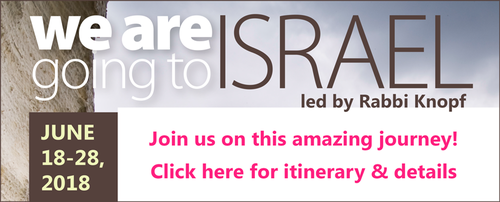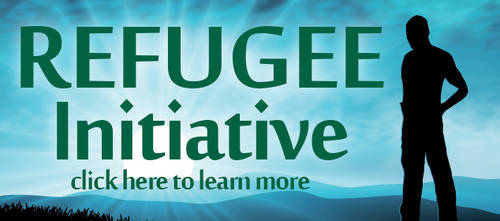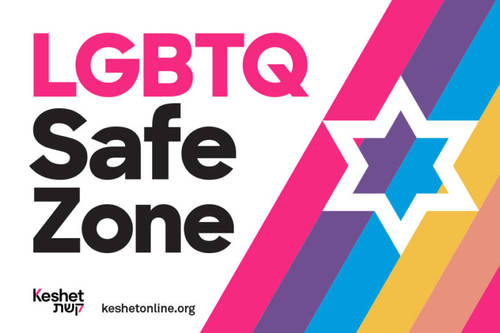Passover Reflections 2020
04/22/2020 12:17:40 PM
Kristin Gorin
| Author | |
| Date Added | |
| Automatically create summary | |
| Summary |
As I watched the Disney version of the Exodus, “Prince of Egypt” this year with my kids, I dreaded the part when all the first born of the Egyptians died. Liam, with big tears looked at the screen with great sadness, and said, Mami, are they dead? It pained me to say yes. I also had to tell him later in the movie that all those Egyptians that chased the newly freed hebrews
drowned and died too. The Passover story always makes me wonder why did all those people have to die? Why was the punishment so cruel? So as life would have it, the death of the first born is in this passage today that Rabbi asked me to reflect on, so I needed to confront the uncomfortable issues for me in this passage.
I asked Rabbi a few questions about this and he pointed out, that we have to see what challenging about the Passover story AND what’s inspiring….So I immersed myself in reading, to find inspiration in the Passover story, related to this torah portion.
I came across a Midrash that explained that there was a rebellion against Pharaoh and the first born sons killed their fathers to PROTEST Pharaoh’s authoritarian leadership. These young men were then sentenced to death by an enraged Pharaoh, and that’s how the first born died, in an act of rebellion against tyranny and oppression of the Hebrew people, not at the hand of G?d. There is another midrash that says that Pharaoh’s daughter was spared the pain of losing her first born and actually left with the Hebrews out of Egypt.
Whether or not these two midrashim are true, they are powerful statements to me about the human role in the redemptive portion of the Passover story. The courageous stories of those young men that rebelled against their fathers and Pharaoh’s daughter who bravely defied her father, and maybe even left Egypt with the Hebrews are with us even to this day as powerful examples of social change and confronting injustice. They also give us hope, inspiration, and courage to redeem the world.
I am reading Rabbi’s book, which I highly recommend, 5 stars, and he challenged all of us to see ourselves in the Exodus. What does this mean? I read something that was profound in the hagadah conglusion by BM Cohen. That it isn’t enough to imagine we were there at the Exodus, we have to feel it on a gut level. I think that is what the seder tries to get us to do, we are always instructed to taste the bitterness of slavery, feel the terror of the plagues for both Hebrews and Egyptians, and experience joy as we witness redemption, but feeling it on gut level changed the dynamic for me. We have to be present with Passover as if we were actually there.
In trying to see myself in the story, it occurred to me that we won’t ever know if G?d was responsible for the death of the firstborn, or the drowning of the Egyptian army, but we can know that modern plagues such as COVID-19, and the issues RISC chose to work on this year, which are the housing crisis, and gun violence are all modern day plagues caused by humans. RISC choses it’s issues by doing a listening process in which members of each congregation are asked “what keeps you up at night? Or in other words, what plagues you?” This is how we know the issues that RISC picks are profoundly affecting our communities. Once we are aware of the issues, it isn’t enough to wish life was better for everyone or hope G?d intervenes one day, we, humans, must do the work of changing the course of human suffering. That in a nutshell is the mission of RISC. After we elect two issues to tackle for the coming year, we then engage in research to find solutions to these systemic problems. For me, the powerful message of Passover is realizing our own redemption story as Jews: first we will relive our own suffering, next we will experience the jubilation of freedom, then what springs forth is empathy for those that are still suffering, and finally we act bravely from that gut level experience of slavery and redemption and get to work on these systemic issues that plague and enslave others.
To quote Rabbi Knopf, “History only progresses in the trajectory of justice if acted upon by an outside force. As G?d’s only creation with godlike consciousness and moral judgement, we human beings can and must be that outside force. Emulating G?d, we can and must help bend the arc of history towards justice.”
I had a thought yesterday after reading this quote: I realized if G?d isn’t responsible for all the evil in the world because we clearly see modern day plagues caused by humans, then G?d certainly isn’t responsible for all the justice. The Passover story is full of human acts of justice. As a baby, Moses’ life wasn’t spared by G?d, it was spared by Pharaoh’s daughter, G?d didn’t yell down to Pharaoh to free the Hebrews, G?d sent Moses. Moses didn’t go alone either, his brother went with him. If we sit back and let G?d do the intervening, it may or may not happen. Maybe G?d needs us to do justice.
RISC’s slogan often used is “Justice demands RISC.” And I think of Moses and Pharaoh often when RISC speaks at city council meetings or with the mayor, the police chief, the commonwealth attorney, and other local leaders. We are presenting our solutions to community leaders, but most importantly we are we are asking for justice to be done in our city
on behalf of those who are still experiencing modern day plagues. BM Cohen writes this in the conclusion to the seder called Zisson Pesach, The Hebrew word “Haggadah” means “The Telling.” It is through the stories that we tell that we build our understanding of the world, of who we are, of the nature ofTruth. The very identities that each of us hold as “ourselves” are really a collection of personal stories that we believe about ourselves. Through the experience of Pesach, we add to our personal narrative, the story of the redemption of our people. We hold in our deepest heart of hearts the Truth that the miracle of Redemption from suffering is possible for each and every one of us, because it happened to us—to “me”—in
Egypt all those years ago.
Let us experience our Redemption, be inspired by the Passover Story and bring with us the determination to free everyone else. Please reach out to me, Rabbi, or Marc Rutman if you want to be a part of RISC. And may you see yourself in the Exodus. Chag Pesach Sameach.
Sun, September 14 2025
21 Elul 5785
SATO events
There are no upcoming events at this time.
Upcoming Temple Events
There are no upcoming events at this time.
Adult Education
There are no upcoming events at this time.
Subscribe
Privacy Settings | Privacy Policy | Member Terms
©2025 All rights reserved. Find out more about ShulCloud






